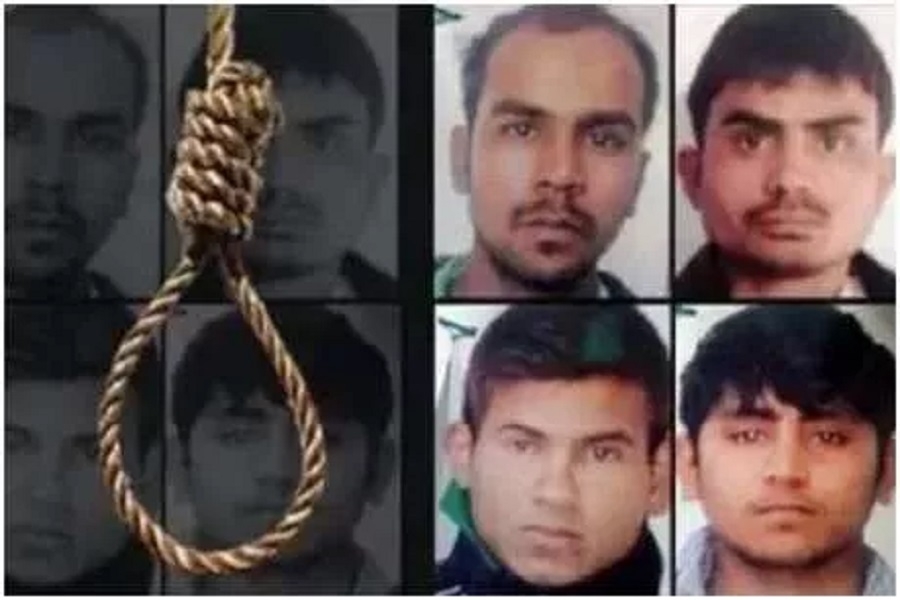SO BELATEDLY...
| Date :16-Jan-2020 |

EVEN after decks are cleared for the hanging of the culprits in the Nirbhaya case, some snags still persist and question-marks hang on the actual execution on January 22, 2020. There is a snag that the Tihar jail authorities have pointed to -- that even if the President rejects the Mercy Petition of a death-convict outright, they would need a time of at least 14 days before the date of execution, a time that the remaining days between now and January22 cannot accommodate. These are, no doubt, technical details for which there may be some solution or none at all.
Such technical snags are making the larger Indian society restless, to say the least, and eager to see that there is no more delay in the execution of the death sentence of all the four convicts whose barbaric action shook the nation more than seven years ago. The nation will never forget the assertion by Chief Justice Mr. Justice Sharad Arvind Bobde as he took over the coveted position, that instant justice could not be the order of the day. Nobody will ever contest the statement coming from the Chief Justice of India (CJI). Everybody does realise that instant justice may not prove to be justice at all in the final analysis of involved issues.
But the nation will also recall how Union Law and Judiciary Minister Mr. Ravishankar Prasad pointed to the delays that often dog the system of justice in the country, immediately after Mr. Justice Bobde’s observation. This is the actual issue that the nation and its judicial system needs to address on an urgent basis. For, this is one issue that has often irritated the disinterested common people. Why so much delay? -- is the question every common Indian in the street has asked not for now but for decades on end. In this particular instance of Nirbhaya case, there is a general unease in the larger Indian society about the lapse of time of seven years between the terrible incident and the final hanging of the convicts. Hence the question: Why so much delay?
It must be admitted that the judicial system and the persons who are its leading lights -- jurists, judges, and also litigants! All of them have asked this question every now and then and tried to find an effective solution to the problem of belated dispensation of justice. Many a solution has emerged from their collective or individual searches for an answer. Yet, none of that has changed the situation, much to the discomfiture of the common people of India. For obvious reasons, it is not possible to make an open allegation that delays are deliberate, even though they are coming to fore in most cases. For, any such open allegation would invite the wrath of the judiciary.
Such an apprehension may stop a few people from making an open allegation of suspect intents, but it has not stopped the common people from indulging in speculations, howsoever undesirable and improper those may be. Though in small parts, the popular suspicion and apprehension may have some substance. For, general experience does support such doubts that some parties may be planning and planting delays so as to slow down -- or even alter the course of -- the unavoidable. There is no doubt that instant justice is, actually, an anathema to the concept of law and justice.
But there also is no doubt that too much delay takes away the punch in the judicial system, ultimately giving rise to an iconic adage: Justice delayed is justice denied. This points makes it imperative for the nation and its judicial system to look for possible solution to judicial delays. Seven years is certainly a seemingly interminable passage of time -- in the Nirbhaya case. And that has compelled us to raise the issue again.